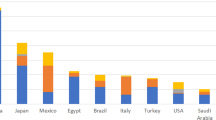Abstract
Background:
Over the last two decades, an alarming rise in infections caused by antibiotic-resistant microbes has been paralleled by an equally alarming decline in the development of new antibiotics to deal with the threat. In response to this brewing “perfect storm” of infectious diseases, the Infectious Diseases Society of America (IDSA) has released a white paper that proposes incentives to stimulate critically needed antibiotic development by pharmaceutical companies. A cornerstone of the recommendations is establishment of a “wild-card patent extension” program. This program would allow a company receiving United States (US) Food and Drug Administration (FDA) approval for a new anti-infective agent targeting a drug-resistant pathogen to extend the patent on a drug within their active portfolio. However, wild-card patent extension legislation is highly controversial due to concerns regarding its societal cost.
Methods:
We performed a systematic literature review to estimate the societal cost of wild-card patent extension compared to the savings resulting from the availability of one new antibiotic to treat multi-drug-resistant Pseudomonas aeruginosa.
Results:
We conservatively estimate that wild-card patent extension applied to one new antibiotic would cost $7.7 billion over the first 2 years, and $3.9 billion over the next 18 years. Thus, even if the new antibiotic abrogated only 50% of the annual societal cost of multidrug-resistant P. aeruginosa (estimated $2.7 billion), wild-card patent extension would be cost neutral by 10 years after approval of the new antibiotic, and would save society approximately $4.6 billion by 20 years after approval.
Conclusions:
Wild-card patent extension appears to be a cost-effective strategy to spur anti-infective development. Although our analysis is limited by the precision of published data, our model employed conservative assumptions.
Similar content being viewed by others
Author information
Authors and Affiliations
Corresponding author
Rights and permissions
About this article
Cite this article
Spellberg, B., Miller, L.G., Kuo, M.N. et al. Societal Costs Versus Savings from Wild-Card Patent Extension Legislation to Spur Critically Needed Antibiotic Development. Infection 35, 167 (2007). https://doi.org/10.1007/s15010-007-6269-7
Received:
Accepted:
DOI: https://doi.org/10.1007/s15010-007-6269-7




